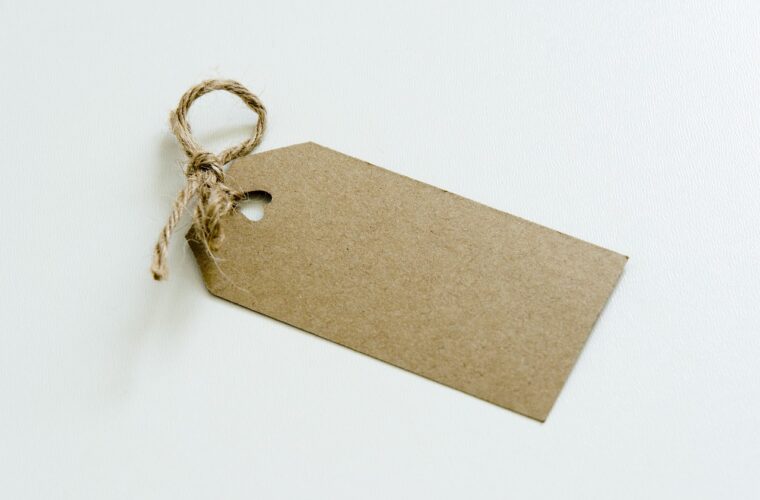The labels we are associated with can change, and sometimes multiply. When a ‘law student’ becomes a ‘graduate’ they might also be known as a ‘solicitor’ or ‘employee’. Someone could be a ‘parent’, ‘child’ and ‘grandparent’ all at the same time! And depending on who is giving their opinion, you can be described as either ‘awkward’ or ‘introverted’. Labels can be a tricky business, so why do we adopt and dole them out so freely? How do they serve us?
What labels do you connect with?
Child? Adult? Parent? Friend?
Worker? Student? Graduate? Volunteer?
Tall? Curvy? Slim? Ripped?
Or maybe you label yourself in ways that say more about your personality?
Extrovert? Quiet? Party Animal?
Intuitive? Emotional? Team Player?
Generous? Creative? Self-Reliant?
What do labels connect you to?
We have seen how we may link ourselves with certain labels or the link is made for us by someone else. But how does this help us function on a daily basis? ‘Doctor’ could help us find a treatment when we are sick. ‘Coeliac’ informs the chef of our dietary requirements. ‘Gamer’ lets like-minded people know our interests and helps us connect with a community. ‘Architect’ can communicate our skill set to potential customers. ‘Mother’ can inform others where our priorities lie.
Labels can therefore be a useful tool to organise and categorise information about each of us. They can also help us navigate the world around us, and connect us with a person in a certain profession, or just with ‘our kind of people’. They can help us find who we are looking for in this societal maze, and through them there is the possibility to connect to community and a sense of belonging.
Is there a sense of comfort in that? There could be. We may feel we know our parameters; we have a mental map where we can size up people or situations quickly. It could bring a sense of order and predictability, control and security.
connection | kəˈnɛkʃn | noun
a relationship in which a person or thing is linked or associated with something else
However, let’s now look at the potentially limiting and damaging nature of labels both within ourselves and the world around us.
How do you connect with your labels?
A positive-sounding label is a good thing, right? Everyone would love to be called ‘genius’, ‘good-looking’ or ‘talented’, don’t you think?
Let’s explore the hidden dark side of positive labels with the following scenario.
Tom, Dolores and Mary are adult siblings. Tom was lucky with physical genes, he’s known as the ‘beautiful one’. Dolores has ‘brains to burn’, she is called the ‘smart’ one. And Mary is very creative; she is often known as the ‘artistic one’. They feel their roles are assigned by the labels that are used for them.
Yes, Tom is flattered by his label but as he grows older his self-care routine becomes increasingly demanding in an effort to counteract the effects of ageing. The thought of one day not being the ‘beautiful one’ hangs heavy as each year passes. Dolores has a high-paying tech job; she proudly graduated in her field with distinction. But as the industry evolves and her specific skill set is being slowly phased out, is she no longer the ‘smart one’? Mary’s songwriting career is pocketed with moments of artistic block. In these creative dry spells she feels completely disconnected with herself and asks, ‘who am I if I can’t create?’.
Who is Tom without his good looks? When AI takes Dolores’ position, where is her worth? And if Mary quits art, what is her identity then?
As this story illustrates, our labels can perhaps feel like an unachievable goal, or even a mental prison. We may feel obliged to live up to our labels and yet feel they no longer serve us.
The connected chains of labelling
As mentioned earlier, labels can serve as a navigator towards community, connecting ourselves with like-minded people. But there can be a really dark side to labels – in their association with prejudice.
Prejudice is an unfair or unreasonable negative opinion or feeling about a person or group of people, based on something like race or religion.
Labels can often be a way of enforcing prejudice, by defining someone based on a single attribute or characteristic, rather than seeing them as a complex and multifaceted individual. They can be used to divide and exclude people, by emphasising differences and creating ‘us versus them’ mentalities.
I’m not going to list them off, but take some time to think about common words that are used to define someone based on one aspect of their whole being. Maybe you have been the victim of this kind of prejudice. Does it feel fair that you were reduced to a single description? Did you feel separate and inferior with this label?
Are we more than our labels?
Say you want to watch a film tonight. You’re feeling a little ‘meh’ so you decide a comedy would lighten your mood. Is that the end of your searching? Will any comedy do?
Maybe not! The label ‘comedy’ gives you a broad idea and narrows the search down a little but it says nothing about the subject, the quality of the writing, the vision of the director, the actors and their unique performances and most importantly, how much you will laugh.
Are we not the same? ‘Teacher’ gives a small insight into who we are but it says little of our story, our experiences outside of our job. It doesn’t speak completely to our strength and how we overcame difficult times. It doesn’t describe our creative expression or how we like to live and it doesn’t describe what it is like to have us as a friend.
Sometimes useful, sometimes harmful – a label cannot define you completely. You are shaped by so many things: your experiences, your relationships, your environment, your biology, and so much more.
So what do you think? What labels are you carrying? Are they serving you?
Maybe you are curious about who you are beyond your labels, or maybe you want to shake some off altogether.
Group work offers a safe, supportive space to explore things like these. Please have a look at the list of courses and their anticipated outcomes to see if there is something that speaks to you.




